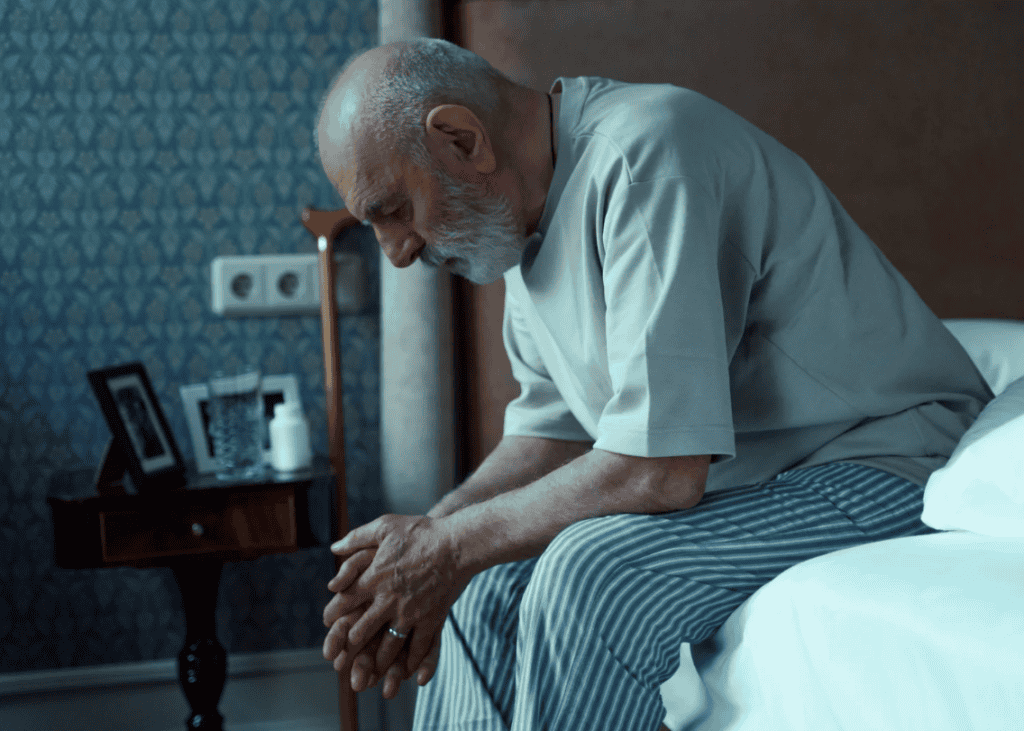As we journey through the years, it’s only natural for our mental wellbeing to ebb and flow, and being aware of the signs can help us walk this path more gracefully. Aging often brings shifts in interests and motivation, changes in our sleep patterns, and sometimes a creeping sense of social isolation—all of which can cast shadows over our mental health. Yet, when we take the time to recognize these changes and understand how they show up in our lives, we get to unlock the first door to protecting our wellbeing.
This post focuses on the changes in mental wellbeing as we age along with some advice on how to best deal with these changes.
Changes in Mental Wellbeing as We Age
Shifts in Interests and Motivation
Noticing changes in what excites or motivates older loved ones can be a real telltale sign of how they’re feeling mentally. When someone who used to light up at the mention of a favorite hobby suddenly seems disinterested or less enthusiastic about activities they once enjoyed, it could be hinting at feelings of sadness, frustration, or even just plain burnout.
In a way, it’s like watching a flower wilt; if you don’t water it, it might lose its spark. These shifts can lead down a pretty rocky road if we don’t pay attention, so it’s very important for families and caregivers to keep an eye out for these changes and step in with some support. Whether that means having open conversations about how they’re feeling, encouraging them to share their thoughts, or even introducing new hobbies that could reignite their passion, every little bit helps.

Sleep Pattern Changes
Changes in sleep can become a pretty big deal as we age, and it’s definitely worth shining a light on. You might notice that older adults have a harder time falling asleep or staying asleep, which often leads to feelings of fatigue and irritability during the day—almost like a never-ending cycle of tiredness that can really take a toll.
According to a study published in the Journal of Clinical Sleep Medicine, nearly 50% of older adults report having sleep disturbances, and this can seriously impact their overall mental and emotional wellbeing. Sleep is one of the foundations of good health, so it’s important to help our loved ones establish regular sleep patterns.

Combatting Social Isolation
Social isolation is another common challenge that can creep in as we age, and it’s worth keeping an eye on. Losing friends, mobility issues, or simply feeling disconnected can all contribute to feelings of loneliness, which can have a detrimental effect on mental health.
Engaging in social activities or connecting with others becomes essential; here’s where short term respite care can really shine—it offers an opportunity for older adults to interact with caregivers and share experiences with others in a welcoming environment.
What’s also really beneficial is that this provides a break for family caregivers, and it’s also a chance for seniors to build new connections and maintain their mental wellbeing.
Aging is something we all have to deal with, there’s no escaping it. But it is important to keep an eye on how you’re doing and what you might want to tweak for a better quality of life. When you prioritize your mental wellbeing, it can really lift your spirits and shape your overall happiness—it comes down to staying connected with loved ones, being open to change, and finding fun ways to keep your mind and spirit alive.


